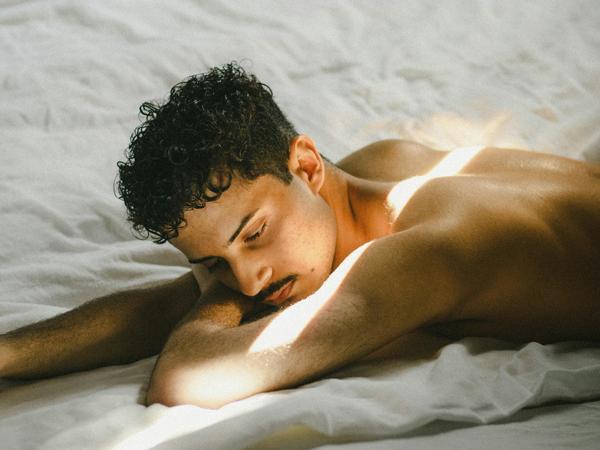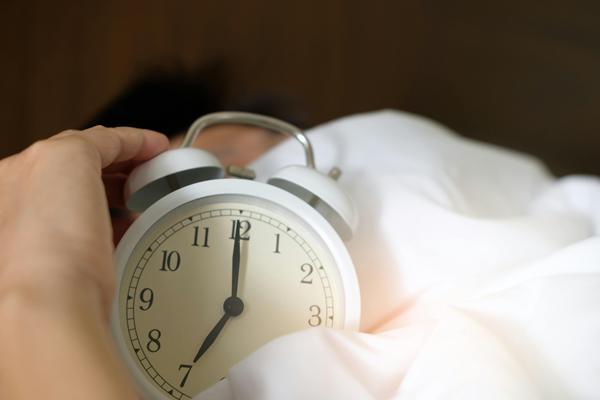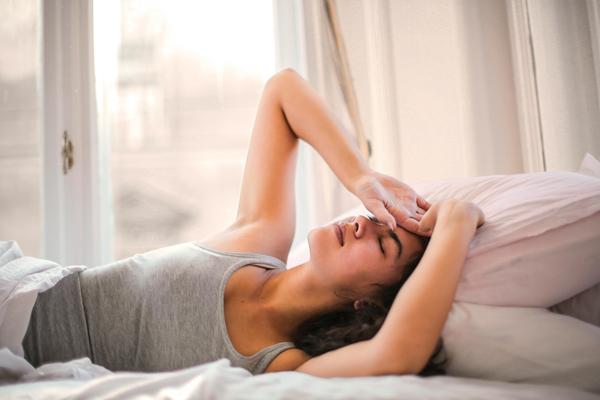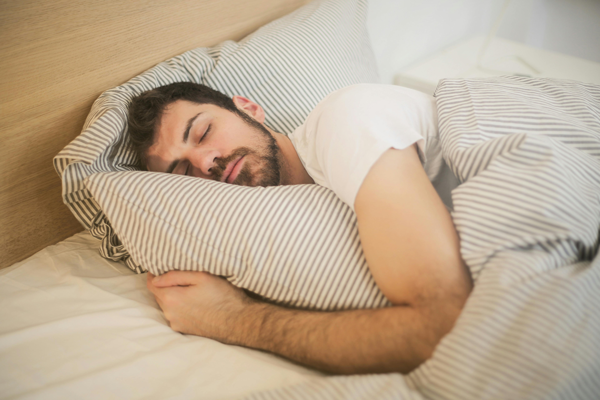It’s that time of year again for many people across Australia when Daylight Saving Time comes to an end and we roll back our clocks. When we “fall back,” most Australian's experience similar effects such as sleepiness, mood swings, and a general feeling of being “off” thanks to our circadian clocks. So if we know Daylight Saving Time affects our overall body, then does that mean it also affects our libido? Read on to find out!
How does Daylight Saving Time affect me?
While most of us probably fluctuate night-to-night on the number of hours we sleep, a one hour difference, as is the case with Daylight Saving Time, can alter basic indicators of our health and dull our mental edge. Dr. Charles Czeisler, chief of sleep medicine at Brigham and Women's Hospital, shared the following tips with CBS News to help your body adjust to the time change.
- Try going to bed earlier: This will help give your body a jumpstart to adjust to the time change and combat any sleep problems.
- Get some sunlight: Ideally first thing when you wake up to help reset your body’s clock.
- Stay away from the 3 pm coffee: Stimulants like caffeine can affect wakefulness and your sleep schedule, especially right after the time change.
- Avoid napping, even if you’re tired: Napping can directly affect your ability to sleep at night when it’s most important for your body to adjust to the time change.
- Don’t get behind the wheel if you’re sleep deprived: If you’re feeling the effects of the time change try not to drive to ensure the safety of yourself and others on the road.
Does the time change affect my circadian clock?
Usually, when our biological clocks are off it’s a trickle-down effect to the rest of our body as they run tight schedules to try to keep up with our actions. According to WebMD moving our clocks in either direction changes the principal time cue -- light -- for setting and resetting our 24-hour natural cycle, or circadian rhythm. In doing so, our internal clock becomes out of sync or mismatched with our current day-night cycle. According to Bart Wolbers researcher and chief science writer at Alexfergus.com, every single cell in the human body is tied to your "circadian rhythm,” a 24-hour cycle in your body that matches itself mostly with the light in your environment. For example, sunlight tells your body that it's time to wake up, while darkness leads to melatonin buildup which makes you fall (and stay) asleep. The centre of this rhythm is located in your brain and all your cells are synchronised to it. With Daylight Saving Time, the light in your environment changes with mornings exposing you to more daylight, while less light is available in the evening. The light in the morning does not just wake you up, but it’s also responsible for the creation of steroid hormones such as testosterone. Believe it or not, both men and women need optimal levels of testosterone for a healthy libido. According to some studies, the higher availability of light in the morning means your libido could indeed increase!

How long will the effects last?
According to Dr. Yvonne Harrison, a senior lecturer at Liverpool John Moores University in England, a small one-hour shift in the sleep cycle can affect your sleep schedule for up to a week. Specifically in the Fall, only a minority of people actually get the promised “fall back”/extra hour of sleep. However, don’t be surprised if the following week, you wake up earlier, have more trouble falling asleep, and are more likely to wake up during the night. People who tend to be so-called short sleepers, logging under 7.5 hours a night, and early risers (also known as larks), have the most trouble adjusting to the new schedule, per Dr. Harrison.
Can I do anything to prevent the effects of Daylight Saving Time?
Not really, but you’re in luck because just like jet lag it only takes a few days to fully adjust after the time change. Dr. Alon Avidan, a professor of neurology and director of the UCLA Sleep Disorders Center, offered suggestions in an ABCNews.com article. "Spend more time outdoors, especially at the beginning and end of the day. The less connected you are to natural cycles of darkness and light, the harder it is to adjust to the time change.”

Okay, so does the time change affect my libido?
The simple answer is yes! According to ASTROGLIDE’s resident OB-GYN, Dr. Angela Jones, waking up to darkness, and coming home in darkness, both of which are common with “falling back,” are associated with increases in depression as well as seasonal affective disorder. One of the common symptoms of depression is a loss of interest in routine activities or activities that typically bring us joy and happiness…..SEX being one of them. As mentioned, there is a science to this. Dr. Angela shares, melatonin levels decrease when light enters our realm, hence, in the morning when we rise, melatonin levels decrease and we can feel “more awake.” Losing an hour of daylight naturally leads to more hours of darkness, and hence, increased melatonin levels, which causes us to feel more tired and have more of a desire to use our beds for actual sleep rather than for a romp session.
What about the change in sleep? How does that affect my sex drive?
According to sex therapist and blogger at doctorclimax.com, Angela Watson, “The science is pretty clear on the fact that less sleep = lower libido, especially as you get older. Therefore, during the springtime Daylight Saving Time change, less sex will likely take place in bedrooms across the nation.” But, don’t worry generally you need a lack of proper sleep over time, not just one or two days to truly affect your libido, according to Adina Mahalli, a certified relationship consultant and sexual health expert at Maple Holistics.

If I have more sex during this time will it help me sleep?
We all know the bedroom is only meant for two things; sleeping and sex. But, can having more sex help you sleep better, making this a double-whammy? You are in luck! More sex helps you sleep, and more sleep boosts your sex drive. According to Sleep.org, sex can actually make it easier to fall asleep. You can thank the hormones released during sex for this. Sex also boosts your oxytocin levels (a hormone that makes you feel connected to your partner) and lowers cortisol (a stress-related hormone). And, having an orgasm releases a hormone called prolactin, which makes you feel relaxed and sleepy, which means there’s no reason not to be having more of it during Daylight Saving Time to combat any sleep problems or sleep disorders you’re dealing with. And, yay women, because there’s a bonus for you in that sex boosts estrogen levels, enhancing your REM stage and giving you deeper slumber. Don’t worry guys, there’s plenty of research to support you sleep deeply after sex, too!

Are shorter days better for my sex life?
While there isn’t scientific proof to this question, we’ll let the numbers do the talking! September is the highest birth rate month, which means...count back 9 months...that the time change might actually be a good thing for your sex life. As in longer periods of darkness and more time spent in bed means more sex is happening! But, if the time change has you in a sex rut, here are 10 unique ways to spice up your relationship with a little spontaneity.
- Take Initiative
- Get Your Schedule in Order
- Remember to Be Playful
- Communication is Still Important
- Seize the Moment
- Stop Sweating the Small Stuff
- Focus on What Your Partner Wants (and Needs)
- Add Something New to Your Sex Life
- Make a Yes! Maybe! No! List
- Take a Trip Somewhere Special
If you’re looking for a simple way to change up your sexy time routine, consider adding some lube into the mix. From our original water-based lubes and warming or strawberry options, to our silicone lube or personal lube and massage oil combinations we have something for everyone.
